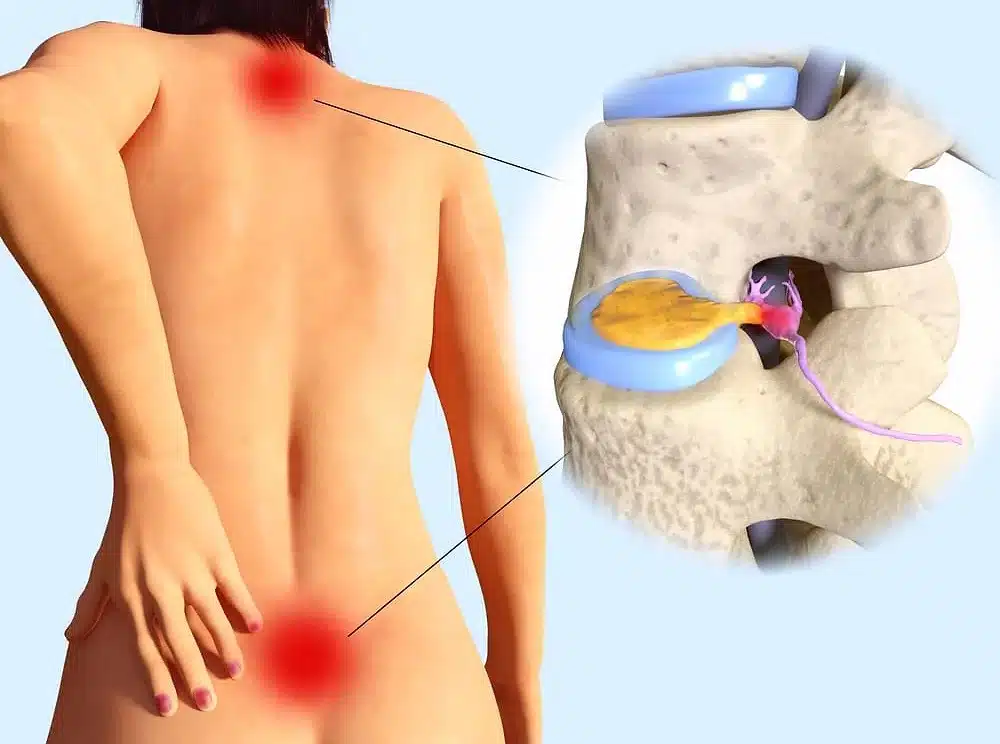
If you have a pinched nerve or also known as nerve compression, your body may send you warning signals such as pain, numbness or tingling. Don't ignore these warning signals. It is important to get pressure off the nerves as quickly as possible to prevent lasting damage to those nerves and muscles.
Damage from a pinched nerve may be minor or severe. It may cause temporary or long-lasting problems. The earlier you get a diagnosis and treatment for nerve compression, the quicker you will feel relief. In some cases, you can't reverse the damage from a pinched nerve. But treatment usually relieves pain and other symptoms.
A pinched nerve occurs when there is compression or pressure on a nerve. The pressure may be the result of repetitive motions, acute injuries, disc herniations, and degeneration. Or it may happen from holding your body in one position for long periods, such as holding a phone between your ear and shoulder while working at the desk.
Nerve compression often occurs when the nerve is pressed between tissues like ligaments, tendons or bones. Inflammation or pressure on a nerve root exiting the spine may cause neck pain or low back pain.
Pain radiating from the neck into the shoulder and arm is known as cervical radiculopathy, also pain may radiate into the leg and foot known as lumbar radiculopathy or sciatic nerve pain.
Pinched spinal nerves can develop suddenly or gradually with problems such as:
Acute joint injury, disc herniation, bone spurs, thickening of ligaments, and many forms of spinal stenosis.

In addition to obtaining a history of the patient’s symptoms, and performing a detailed physical examination, proper imaging can be very helpful. The best test to visualize the spinal nerves is an MRI, which will also show soft tissue such as the discs and where the nerve is being compressed. In some cases, a procedure called an electrodiagnostic study, or EMG/NCS, can assist doctors in identifying the affected nerve.
The human body is generally adaptable to changes that occur during the aging process, oftentimes compressed, or pinched, spinal nerves are identified incidentally and do not cause any symptoms at all. It is natural for this compression to gradually develop during the aging process, as we lose disc height and develop bone spurs we naturally have less space for the nerves that exit the spinal column. It is important to realize that unless a compressed nerve is causing symptoms such as pain, weakness, or numbness and tingling leading to longstanding functional changes, treatment may not be necessary.
At Health In Motion Chiropractic we treat patients and not imaging studies. We look to find the source of our patients’ pain and by addressing the root cause our patients can get back to their pain free lives as quick as possible.

In the past, whiplash injuries were often treated with immobilization in a cervical collar or brace. However, recent research is to encourage early movement instead of immobilization, which has shown to provide a faster, more effective recovery. Ice is often recommended, followed by a gentle, active movement.
At Health In Motion Chiropractic our pinched nerve doctors use many different non-surgical treatment modalities geared towards the primary dysfunctions found during our exam. These often including:
Chiropractic Manipulation
Muscle relaxation and/or stimulation
Therapeutic exercises
Manual therapy
Spinal decompression
Flexion-Distraction
Ergonomic and lifestyle changes.
Cold or Heat therapy

At our office, Health In Motion Chiropractic we also address the soft tissue component to decrease muscle tension, thus allowing for proper joint mechanics within the spine. At our office, we believe that all parts of the musculoskeletal system work together and in order to provide proper treatment and to live a life we must address all of them.
We believe a conservative approach is the best place to start but always work with other health care professionals. If a patient is not responding to treatment, they will be referred to the appropriate specialist to make sure they are getting the care they need.
If you have symptoms that you suspect may be coming from a pinched spinal nerve, contact us at health in motion chiropractic to have it addressed, sooner rather than later. Research has shown that the longer the symptoms persist, the harder they become to treat.
Call us today at (386)-320-0325 for relief of your symptoms or for assistance in reaching optimal health.
Call us today at (386)-320-0325 for relief of your symptoms or for assistance in reaching optimal health.
